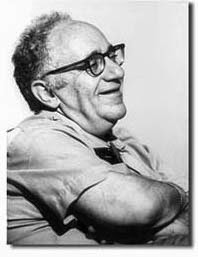There are different ways to define the government. Oppenheimer defined the state as the organization of the political means. There are two ways to obtain wealth. The first method is to produce or trade for it; this is the economy means. The second method is to avoid the work of production and simply to take what another has created. This is the political means. Weber defined the state as a territorial monopolist of violence. But another key distinction of government is it's monopoly on arbitrage and decision making.
The problem with the limited government view is that once an organization has been granted a monopoly on arbitrage there is simply no method of checking the inexorable growth of it's power. People love power and will usually decide to aggrandize their own or that of an organization which they are a part of. Which is not to say, for those who oppose the state and it's perpetual violence, that there is no hope. Ideology can trump self interest and we should never neglect the role that ideas play in shaping history. But it is also important to examine whether the particular means of those who are opposed to an ever expanding state are suitable for their ends of limiting government.
The solution, then, is to allow for free competition in arbitrage and judicial decisions. Instead of promoting a state monopoly in justice allow for a market in legal decisions. One common objection to this idea is that it will make justice be for sale to the highest bidder. But there is little demand for a judge who can be bought; his decisions will not hold much weight with other parties. The most widely sought after jurists would be those who are the fairest. And while the present legal system is costly, inefficient and painfully slow, there would be incentives in a legal market to provide cost effective and quick solutions. The cost of participating in the state's legal system can be so expensive that vexatious litigants can use the threat thereof against wealthy organizations as a means to a quick payday. And it is not as if judges today are entirely above bribery anyway.
The question of exactly what a form a market in justice might take is an interesting academic exercise but not necessarily one which can be answered. No doubt what would develop over time would be combination of theory and practice as practices which worked were adopted and those which didn't were discarded, much like the tradition of common law itself. As for verdicts being enforced without the state, certain courts may demand assets might be held in escrow for the participation of parties and David Friedman points out the emphasis of the discipline of repeat dealings. An organization which routinely thumbed their nose at legal rulings would suffer a loss of reputation and would lose their ability to settle disputes legally as other organizations would refuse to go to court with them.
The inefficiencies of areas of the economy monopolized by the state have been observed and decried for centuries now. Isn't it time we let market competition work in one of the most vital areas of human endeavours?

No comments:
Post a Comment